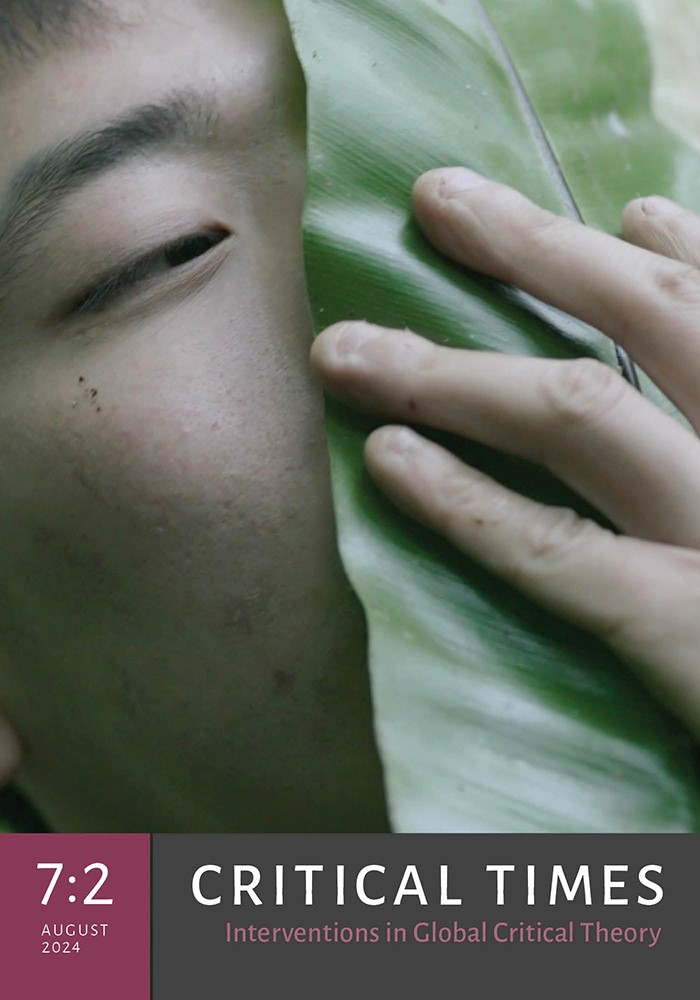
Vol. 7, No. 2 (2024)
This issue of Critical Times features a special section on relations beyond colonial borders. Assembling interventions from scholars, activists, poets, and artists, it asks how we can think movement and inhabitation without reproducing the political and legal frameworks that the modern border regime solidifies. Contributions to the issue also include a critical reading of Peter Sloterdijk’s philosophical spherology, a critical phenomenology of collective memory, a set of theoretical reflections on recent claims that we are witnessing neoliberalism’s “end,” and a novel reading of Palestinian resistance as a “formless” anticoncept.
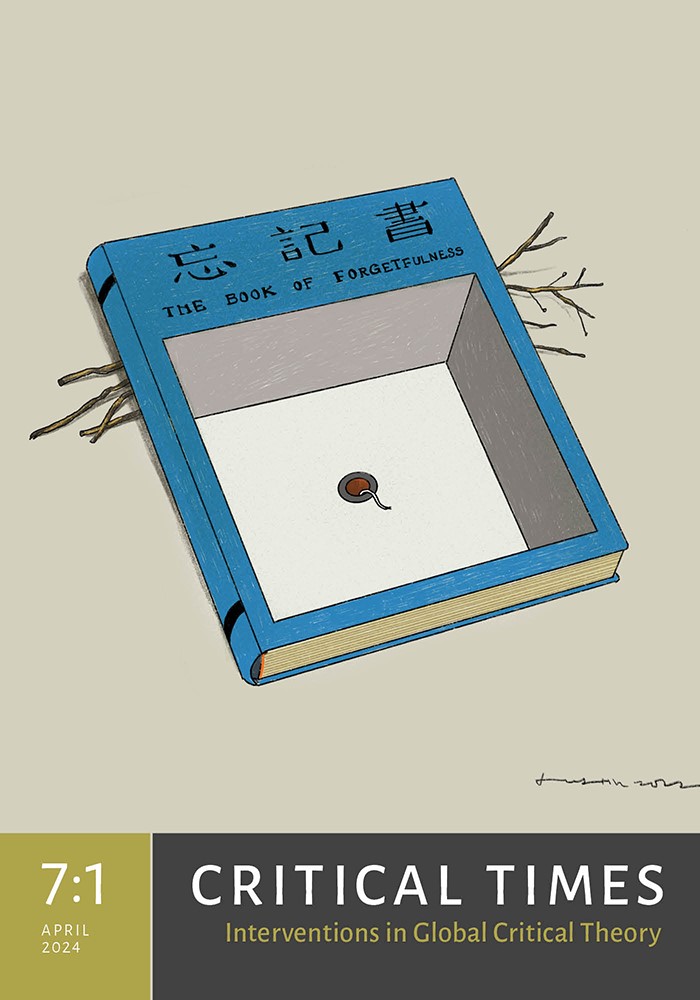
Vol. 7, No. 1 (2024)
Contributions to this issue of Critical Times reread Rosa Luxemburg in light of her staunch commitment to a Marxist theory of history; explore the possibility and impossibility for dialogue between Black aesthetics and Adornian aesthetics; and locate a collusion between ethnonationalism and antiblackness in Puerto Rican aesthetics. The issue also features a special section on "Reproductive Injustices" that moves across Argentina, Chile, Palestine, Poland, and the United States, departing from the liberal narratives of choice that often frame understandings of reproductive rights as it traces new conceptual frameworks and practices of feminism. Finally, the issue includes an exploration of mask wearing during the pandemic from a clinical perspective, as well as an artistic intervention by political illustrator and Hong Kong-dissident Justin Wong (Wong Chiu-Tat).

Vol. 6, No. 3 (2023)
Contributions to this issue of Critical Times consider the representation of Gandhi by his assassin, Nathuram Godse, and the illegibility of Gandhi's political philosophy for the Hindu right; offer a critical homage to Ranajit Guha and illuminate his unique phenomenology of time; explore B.R. Ambedkar's use of Buddhist philosophy in his challenge to the “permanence of the theologico-political”; and think with concretion—submarine growings-together—as ambivalent agglomerations of matter, history, and animacy that mark and rework imperial presences at the seabed. The issue also features a conversation on the histories of colonialism and anticolonial resistance in a Mapuche and Haitian context, as well as an artistic intervention by choreographer Cecilia Lisa Eliceche reflecting on practices of neocolonial spiritual extractivism.
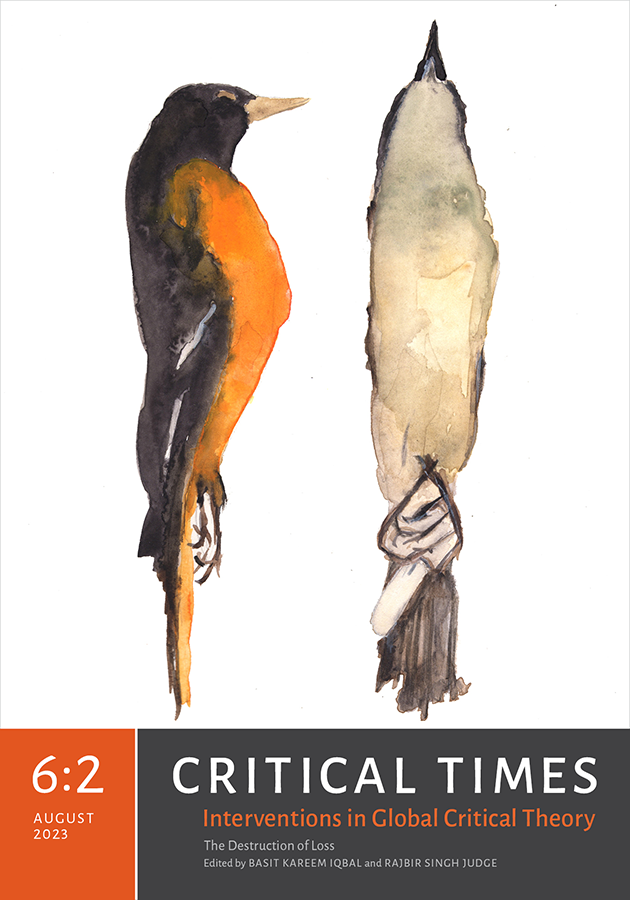
The Destruction of Loss
Vol. 6, No. 2 (2023)
How does one narrate a loss after the destruction of its context, when the border between mourning and melancholia is rendered unstable, or in the absence of a common historical horizon? This special issue maps out asymmetric distributions of loss across varied disciplines and archives in order to grapple with these difficult questions. Contributions traverse mourning and racial melancholia as they inhabit and exceed the geography of Afghanistan; Bataille’s concept of sovereignty as it figures a “survivor” born of catastrophe; parallax loss in the People’s Republic of China; a new theorization of “danger”; the Quechua Bolivian remaking of landscapes defined by subjection; Canadian Indigenous loss and settler mania; a rethinking of fetishistic narratives of the Iranian revolution; a wayward approach to black theology for Black thought; a historical situation of loss in Thailand’s far south; the losses wrought by Chilean neoliberalism; and finally, an analysis of Madhulika Jalali’s documentary film, Ghar ka Pata, a Kashmiri Pandit memory project. With a special section titled “Erosion,” the issue explores global permutations of loss while remaining attentive to the history of destruction.
This issue of Critical Times is guest edited by Basit Kareem Iqbal and Rajbir Singh Judge.
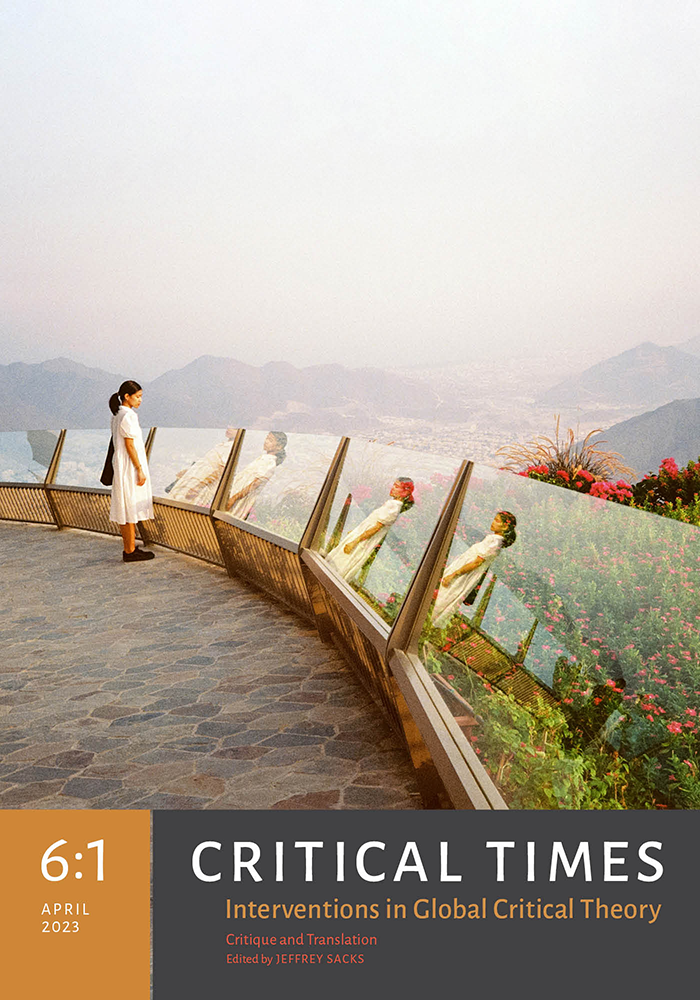
Critique and Translation
Vol. 6, No. 1 (2023)
How might translation complicate notions of critique as the provenance of an autonomous subject? This special issue of Critical Times rethinks critique as a material and social practice, as "welcoming in place, hosting in language, and hosting in situation." The issue traverses genre and media as contributors re-examine the role of language in Frantz Fanon; trace a Marxian citation as it winds its way from Edward Said to Gayatri Spivak; track the inheritances and affordances of critique through the work of Husayn Muruwwa, Rabih Mroué, and Mona Hatoum; as well as read for silences in the colonial archives of Assia Djebar and Adania Shibli to explore what resists translation. The issue concludes with poetry and a photo series from the diasporic Sa Tahanan Collective, whose work and practice enacts a home-making in translation.
This issue of Critical Times is guest edited by Jeffrey Sacks.

Vol. 5, No. 3 (2022)
This issue of Critical Times features a special section on contemporary strike actions as they draw on and depart from the longer inheritance of political strikes and of proletarian or revolutionary general strikes: from recent historical instances of the feminist strike, to the South African practice of the road blockage, to Palestinian hunger strikes, both individual and collective. Contributions to the issue also include an analysis of the concept of ressentiment as a mode of regression in the face of crisis, a new genealogy that uncovers a politics of abolition at the heart of the general strike, and a reading of the Mapuche hunger strikes, which unsettle the apparatus of necropolitical sovereignty. The issue concludes with a “strike image archive ‘from below,’” which assembles images from two 1970s workers’ strikes in Lebanon while reflecting on the limitations and possibilities of such images.

Vol. 5, No. 2
(2022)
This issue covers topics ranging from the minor and the subaltern in Qadri Ismail’s work on Sri Lanka, the aesthetics of resistance to Turkey’s “security operations” targeting Kurdish towns, Islamic thinkers at the periphery of the anticolonial archive, Tanazania’s collective response to the 2011 electrical power crisis, and academic freedom and the politics of dissent. The Critical Encounters section features translated pieces on the concept of consent and on the visual and narrative strategies of the Mexican feminist movement, and an essay on the political utopias of contemporary Angolan activism. It concludes with a portfolio of photographs inspired by the late Palestinian poet Mourid Barghouti.
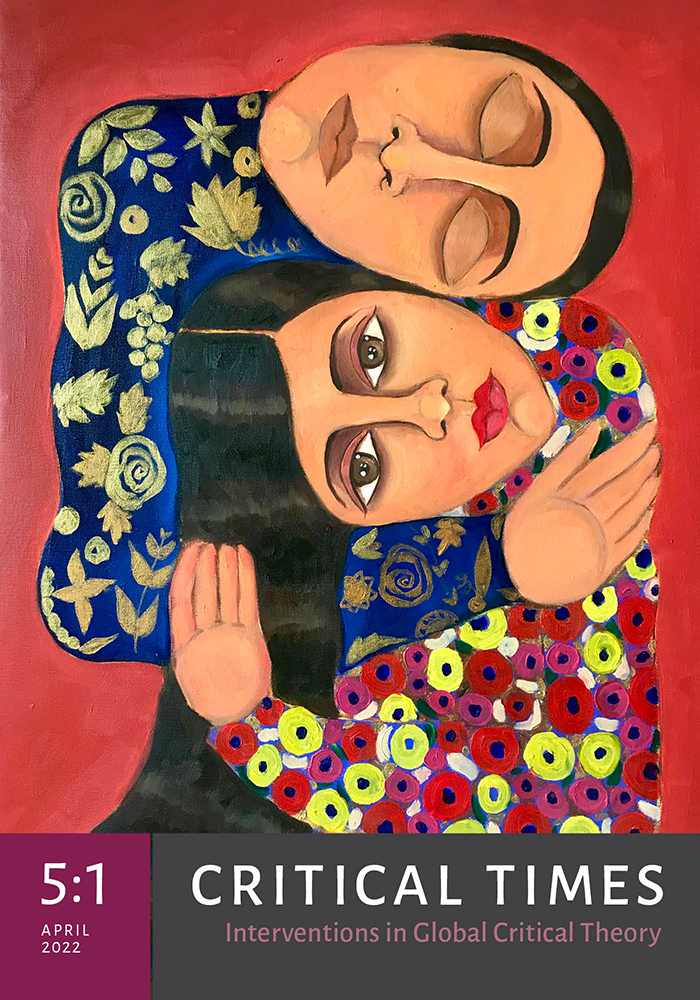
Vol. 5, No. 1
(2022)
Contributions to this issue include calls for a non-state alternative to ensuring academic freedom, a probing look at the politics of deferral in Zionism and colonialism, and an exploration of the prefigurative possibilities emerging from the ruins of capitalism. The issue also features a special section on the future of global higher education, a roundtable on María Pia López’s Not One Less: Mourning, Disobedience, and Desire, and sketches and oil paintings by Palestinian artist Malak Mattar.
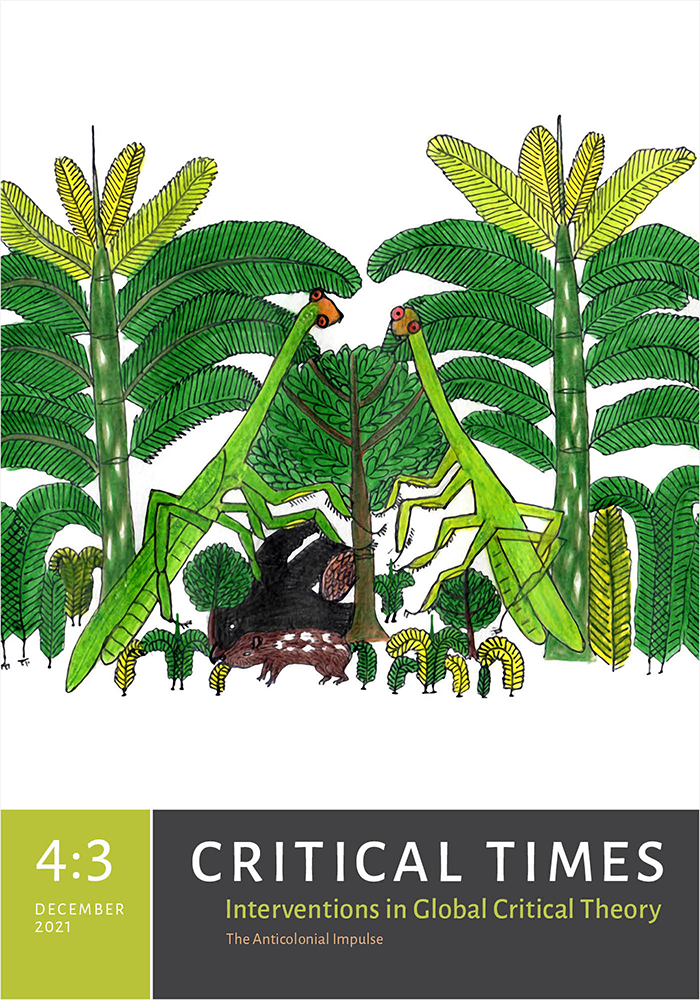
The Anticolonial Impulse
Vol. 4, No. 3 (2022)
How does anticolonial thought constitute a resource for critique today? The articles in this special issue uncover not only the possibilities latent in anticolonialism but also its relevance to contemporary political struggle. The issue sets canonical figures such as Gandhi and Fanon alongside the theoretical insights of a range of less well-known thinkers including Palestinian and Lebanese revolutionaries, South African critics of ongoing decolonization, and Sufi anti-imperialists from the Indian Ocean. Through this confrontation, attentive to the diversity of concrete historical-political contexts that have animated anticolonial arguments and practices, the issue explores the limits and the potential trajectories of an anticolonial impulse for a postcolonial world.
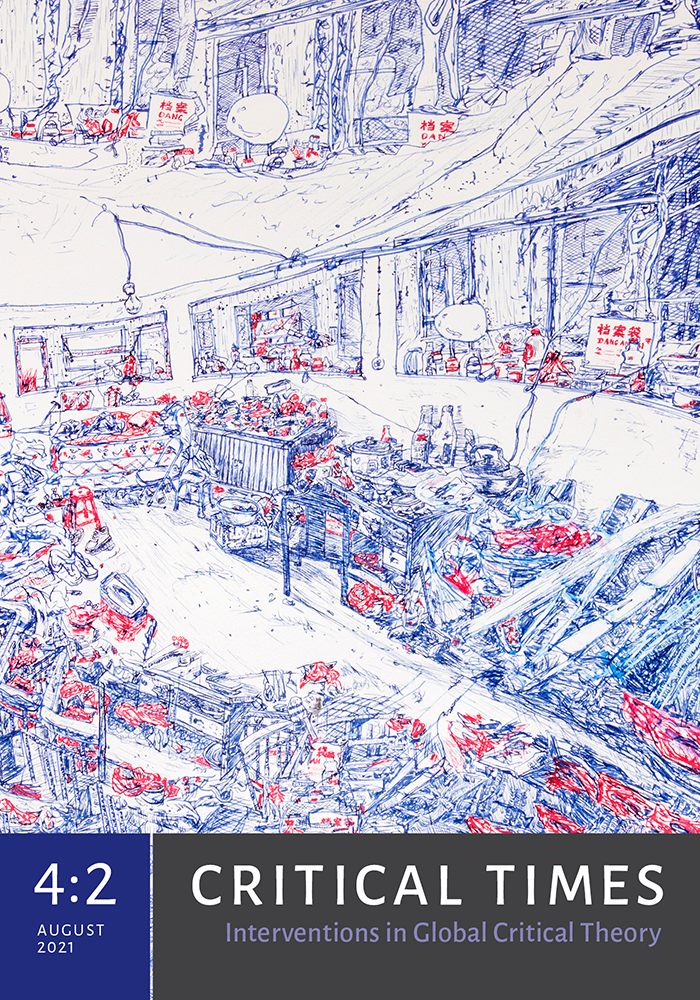
Vol. 4, No. 2 (2021)
“Crystallization” in Frantz Fanon’s political philosophy, the body’s surface in Hannah Arendt’s oeuvre, the “life strike” of migrants in Europe, and “abolition pedagogy” in South Africa are offered by contributors to this issue as critical sites and practices for confronting the violences of colonial history, biotechnological surveillance, and institutionalized higher education. The issue also features a roundtable on Tendayi Sithole’s 2020 book The Black Register, poetry by Zakaria Mohammed, and stills from a video installation by artist Yi Xin Tong.
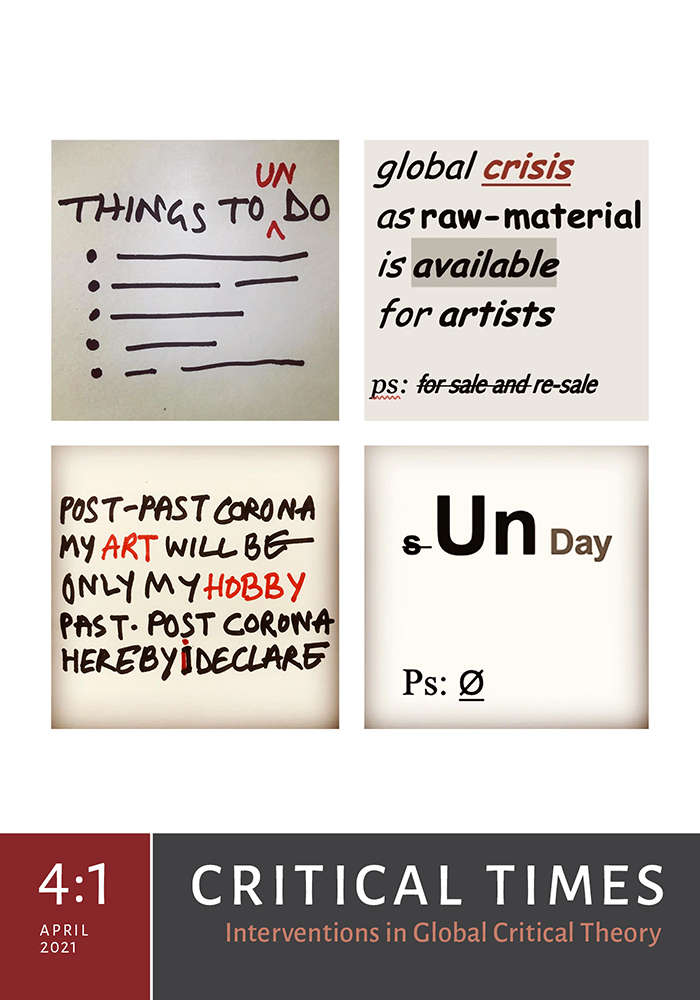
Vol. 4, No. 1 (2021)
Contributors to this issue uncover the critical sensibilities that both enable and emerge from political life. Subjects range from the agency of counter-communities to the timeliness of political courage, from Foucault’s use of irony in his reading of neoliberalism to the question of what it would take to decolonize Frankfurt School critical theory. Special sections on Étienne Balibar’s recent contribution to Critical Times (in vol. 3:3) and on debt, blame, and responsibility in Puerto Rico show how violence and colonialism continue to structure our present. The issue concludes with a wry artistic intervention that unsettles the position of “the female artist from the Global South.”
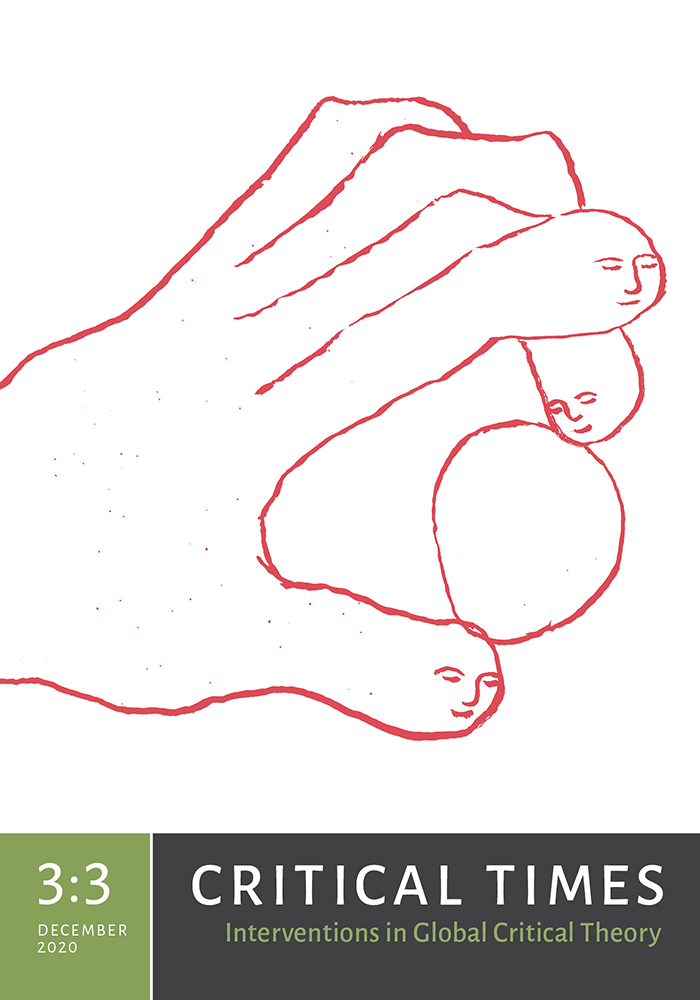
Vol. 3, No. 3 (2020)
This issue plumbs the currents of contemporary politics and violence, and offers powerful rethinkings of critique and belief in ordinary life. On subjects ranging from the abject rhetoric of Matteo Salvini to emergent discourses of resilience, essays from Étienne Balibar, Lorenzo Bernini, and Rodrigo De La Fábian offer a picture of global power in action. A roundtable on Talal Asad’s work on Wittgenstein and the Qur’an brings together leading voices in the study of religion.
Capping the issue are dispatches from global student movements and an artistic intervention from the KUNCI Study Forum and Collective.
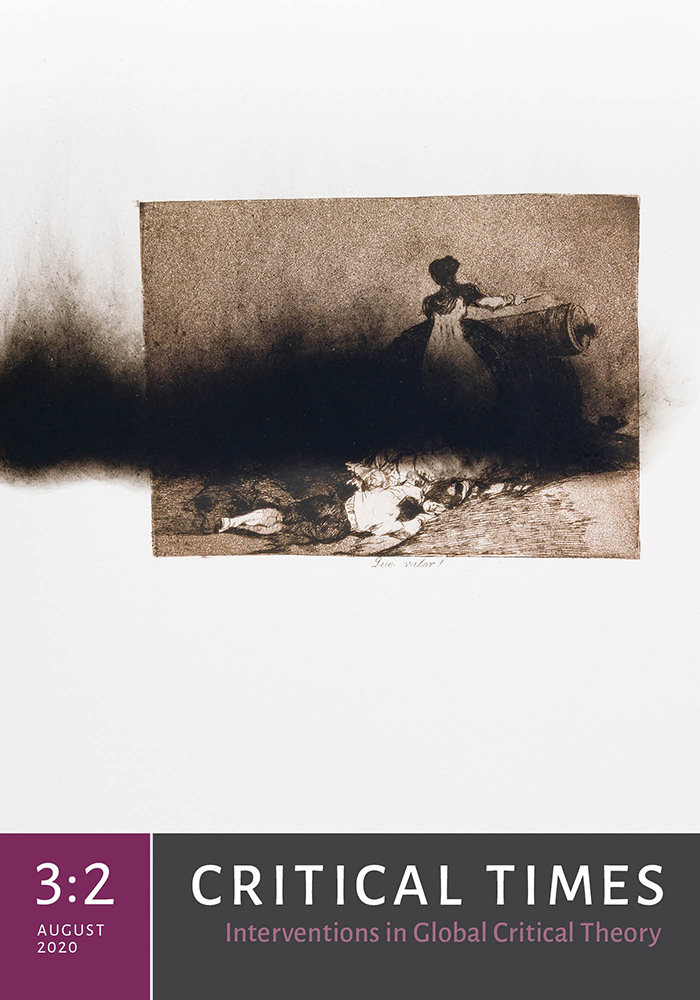
Vol. 3, No. 2 (2020)
Essays in this issue explore the violence behind contemporary spectacle and the possibilities of radical aesthetics, unsettling our understanding of regimes of the sensible in the process. Subjects range from feminist protests to the films of Felipe Cazals, from the art of Maria Eichhorn to Beckett’s Endgame. Critical encounters and aesthetic contributions provide new angles on Puerto Rico's people's assemblies, survivors of the Armenian genocide, and Goya's relevance to Brazil's political realities.

Vol. 3, No. 1 (2020)
Contributors to this issue address problems ranging from the emergence of new fascisms to the liberal and authoritarian logics of self-ownership, and from the movement for Boycott, Divestment, and Sanctions to the powers of literary fiction. The issue also features a set of critical encounters and artistic interventions that complement and formally complicate these scholarly contributions.
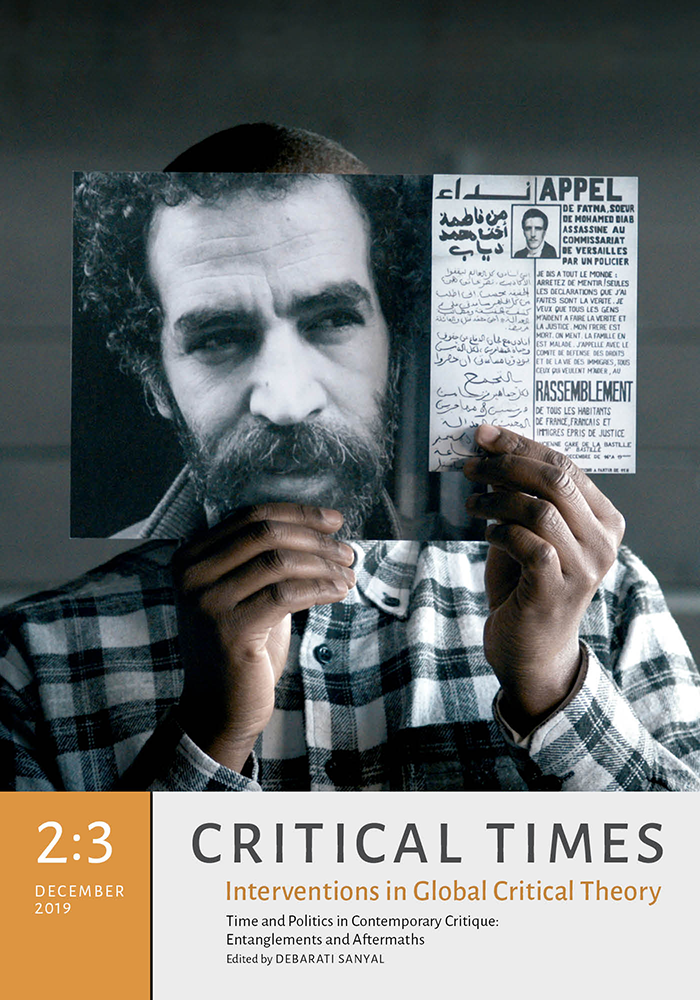
Vol. 2, No. 3 (2019)
This issue examines the entanglements and aftermaths of colonialism, Apartheid, and genocide in our moment of forced displacements, techno-surveillance, and global authoritarian ethno-nationalism. The essays connect seemingly disparate legacies of racialized violence; they negotiate continuities and discontinuities between events and aftermaths; and they offer various openings for imagining the future, the un-thought, and the not-yet-imagined.
Contributors to the issue include Vilashini Cooppan, Paul Gilroy, David Theo Goldberg, Marianne Hirsch, and Debarati Sanyal. Their essays examine the roles of both memory and critique in our understanding of political time. They ask how the legacies of slavery, empire, colonial extraction, and genocide continue to shape contemporary political contexts, and they turn to a range of historical and artistic archives in order to remember and imagine otherwise. In “Rhythm in the Force of Forces,” for example, Gilroy turns to anti-Apartheid jazz and Black Atlantic music as sites of resistance for our current moment. In his essay “Coding Time,” Goldberg analyses the conjunction of technology, security, and racism and develops an algorithmic ontology that parts ways with the posthuman. And in “Stateless Figures,” Hirsch finds possibilities for a counter-monumental form of memory in the work of contemporary women artists responding to the experience of statelessness.
A dispatch from Sudan by Elsadig Elsheik considers the aftermath of the popular uprising that deposed Omar Al-Bashir in 2018. Artistic interventions by Bouchra Khalili and Jane Taylor offer further, compelling perspectives on the questions addressed throughout the issue: the confluence of times, the task of critique, and the commitment to justice.
This issue of Critical Times is guest edited by Debarati Sanyal.
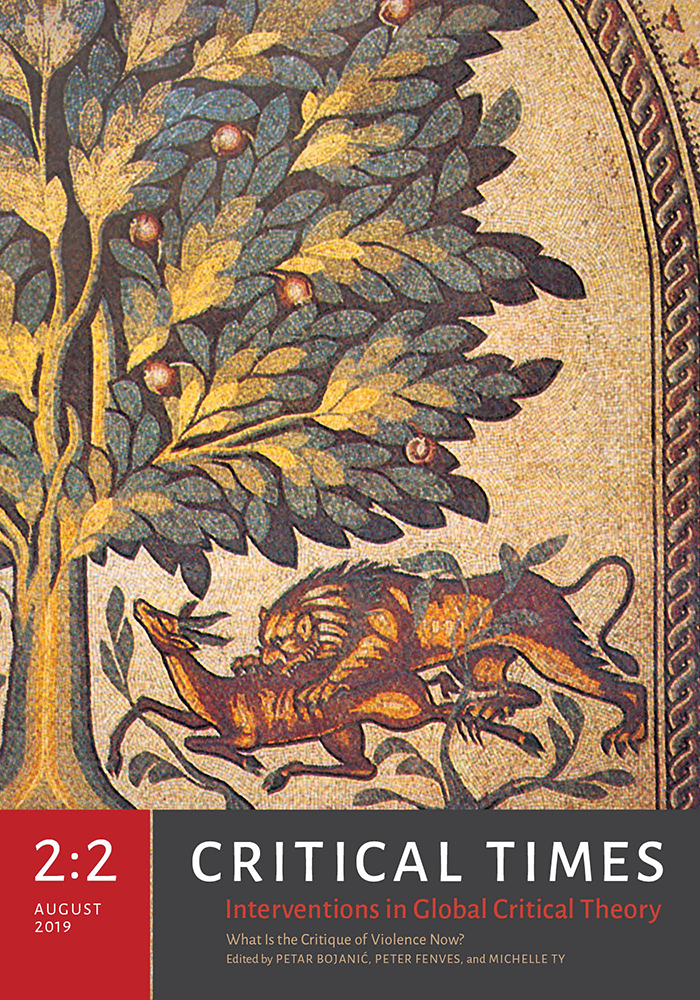
Vol. 2, No. 2 (2019)
Walter Benjamin’s 1921 essay “Toward the Critique of Violence” has been newly translated by Julia Ng and Peter Fenves (forthcoming Stanford University Press), providing a new opportunity to consider its language, argument, and contemporary relevance to the problem of legal violence. This first thematic issue published by Critical Times, titled "What Is the Critique of Violence Now?" reflects the collective work of a group of international scholars who met to discuss the text paragraph by paragraph in Rijeka, Croatia, in the summer of 2018, and who sought to combine close readings with a general reflection on the political relevance of the essay for today’s political world.
The concept of legal violence proved central to each of these considerations, and the task assigned to each other was to discern, if possible, the echoes of contemporary legal violence in the account that Benjamin gave nearly one hundred years ago. Although the essays in this collection range from etymological to legal and political analysis, they each seek to think through Benjamin's essay in light of new modes of reading and from various geo-political conditions. For instance, some essays consider the administrative forms of violence characteristic of border politics, the use of the law to sanitize and execute forms of violence, and the continuing problem of treating law as if it were the antithesis of pre- or extra-legal violence. When and if the laws of a regime are instruments of violence, then violence is hardly external to law, but becomes the form of violence generally recognized as justifiable. These essays work through the language and movement of Benjamin’s text as it resonates with the present, considering the possibility of nonviolence as civil technique and as a potential of language that exceeds instrumental and informational frameworks.
The artwork by Palestinian visual artist Sharif Waked gives architectural form to the force of legal violence.
This issue of Critical Times is guest edited by Petar Bojanić, Peter Fenves, and Michelle Ty.
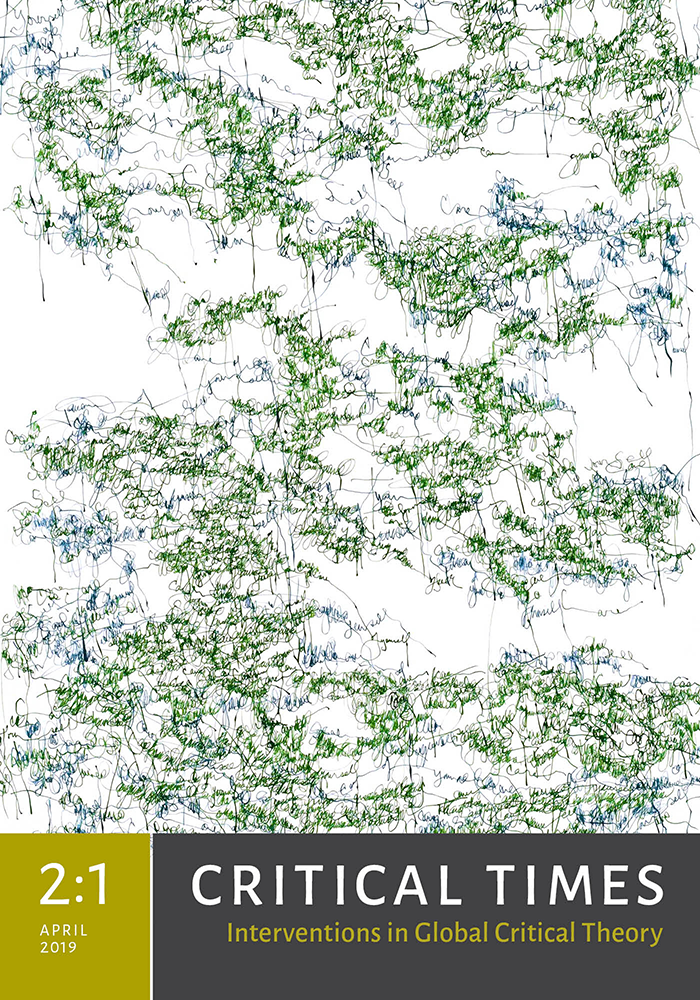
Vol. 2, No. 1 (2019)
The second volume of Critical Times welcomes Samera Esmeir from the Department of Rhetoric at UC Berkeley as its new editor. Esmeir is a scholar of legal humanities, and her research focuses on the Middle East. She is the author of Juridical Humanity: A Colonial History, published by Stanford University Press in 2012. She is presently working on a book manuscript entitled The Struggle That Remains: Between the World and the International.
This second volume opens with a special section on the work of Saba Mahmood, who passed away on March 10, 2018. The short contributions found in this section consider Mahmood’s influence on anthropology, history, the legacies of critique, political economy, secularism, feminism, and humanism. In the “Scholarly Essays” section, three distinct but overlapping themes are pursued: the critical situations of universities in India, South Africa, and Chile, the punitive dimensions of neo-liberalism in Argentina, and public mourning as a political right in light of the disappearance of Mexican student activists from Ayotzinapa in 2014. We include as well poetry, commentary, and visual art that attends to loss, space, poetry, and the image.
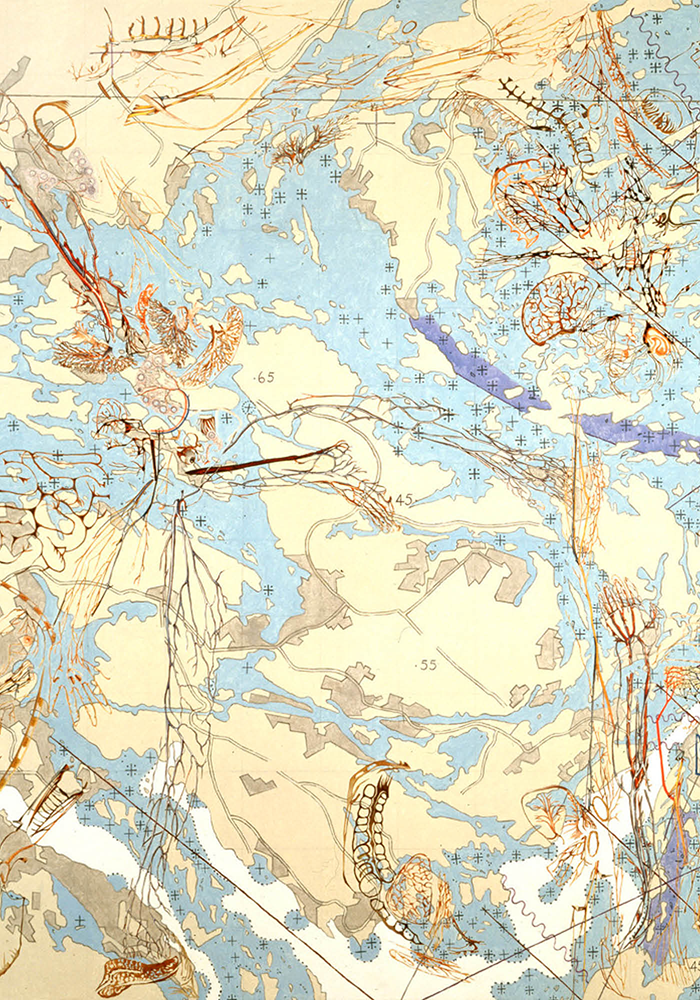
Vol. 1, No. 1 (2018)
This inaugural volume of Critical Times takes the pulse of the current global political condition, engaging with contexts marked both by the crisis of liberal democratic regimes and by the emergence of new authoritarian political and cultural formations. Some of the essays in this issue analyze the sudden consolidation of right-wing populisms, their underlying totalitarian undercurrents, and the attendant shattering of the political and juridical regimes of truth that held sway until recently. Other contributions aim at exploring the popular potential for progressive forms of governance on the left, observing its current achievements and pitfalls, or seeking radical precedents in the historical past.
